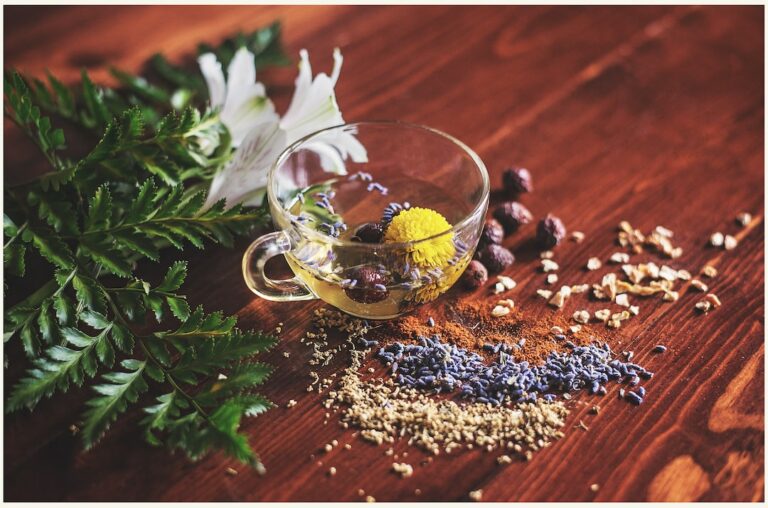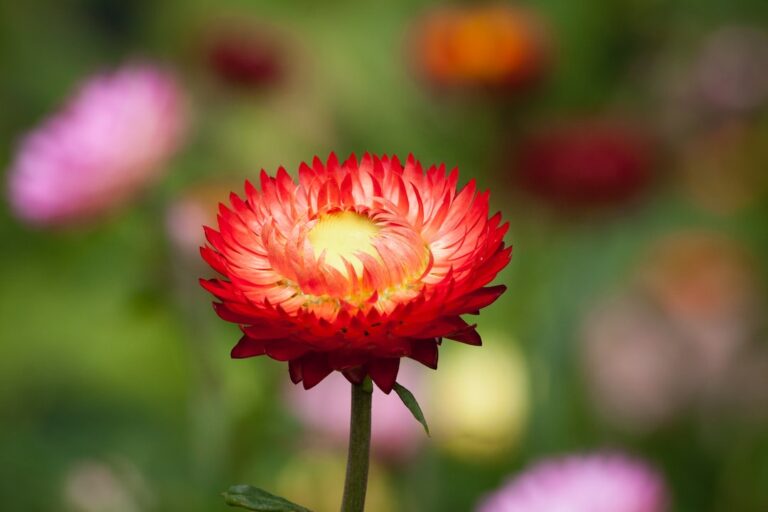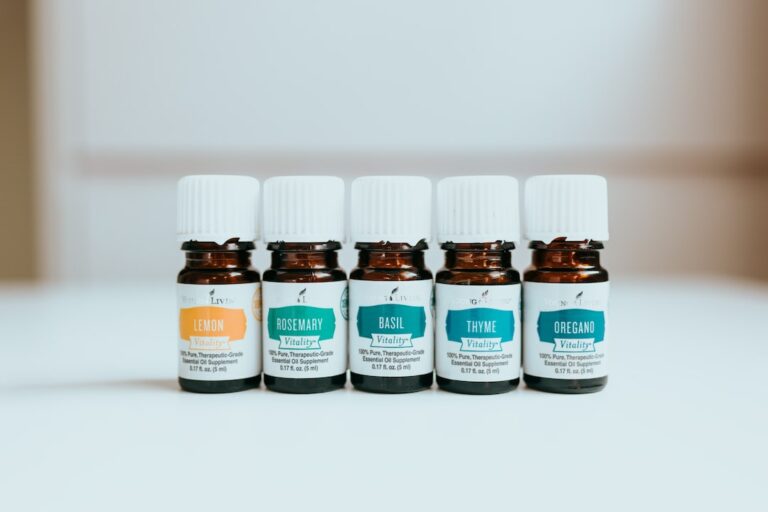Introduction
What is herbal medicine?
Herbal medicine, also known as herbalism, is a traditional practice that uses plants and plant extracts to promote health and treat various ailments. It has been used for centuries in different cultures around the world. Herbal medicine is based on the belief that plants contain natural substances that can support the body’s healing processes. Many herbs have been scientifically studied and found to have beneficial properties. Some common examples of herbal remedies include chamomile for relaxation, ginger for digestion, and echinacea for immune support. Incorporating herbal medicine into your wellness routine can be a natural and holistic approach to maintaining good health.
History of herbal medicine
Herbal medicine has a rich history that dates back thousands of years. The use of herbs for medicinal purposes can be traced back to ancient civilizations such as the Egyptians, Greeks, and Chinese. These early cultures recognized the healing properties of various plants and developed sophisticated systems of herbal medicine. In fact, many of the modern pharmaceutical drugs have their origins in herbal remedies. Throughout history, herbal medicine has played a crucial role in treating a wide range of ailments and promoting overall health and well-being.
Benefits of herbal medicine
Herbal medicine has numerous benefits for overall health and well-being. It has been used for centuries in various cultures as a natural and holistic approach to healing. One of the key advantages of herbal medicine is its ability to treat the root cause of ailments rather than just alleviating symptoms. This approach promotes long-term health and prevents the recurrence of health issues. Additionally, herbal medicine is often gentler on the body compared to synthetic medications, reducing the risk of adverse side effects. Some commonly used herbs, such as ginger, turmeric, and chamomile, have potent anti-inflammatory properties that can help reduce pain and inflammation. Other herbs, like ginseng and ashwagandha, are known for their adaptogenic properties, which can enhance the body’s ability to cope with stress. Incorporating herbal medicine into your daily routine can support your immune system, improve digestion, and promote overall vitality.
Types of Herbal Remedies

Herbal teas
Herbal teas have gained popularity in recent years as a natural alternative to conventional medicine. They are beverages made from the infusion or decoction of herbs, flowers, or other plant materials. Herbal teas are known for their various health benefits, including promoting relaxation, boosting the immune system, and aiding digestion. Unlike conventional medicine, which often comes with potential side effects, herbal teas are generally considered safe and have been used for centuries in traditional medicine practices. Incorporating herbal teas into your daily routine can be a simple and enjoyable way to support your overall health and well-being.
Herbal supplements
Herbal supplements have gained popularity in recent years as a natural alternative for improving overall health and well-being. These supplements are derived from plants and herbs, which have been used for centuries in traditional medicine practices. One of the key benefits of herbal supplements is their ability to provide natural anxiety relief. Many individuals turn to herbal supplements as a way to manage and reduce symptoms of anxiety, without the potential side effects associated with prescription medications. These supplements offer a holistic approach to anxiety management, targeting both the physical and emotional aspects of this condition. With their natural ingredients and calming properties, herbal supplements can help promote relaxation, reduce stress, and improve overall mental well-being. If you’re looking for a natural solution to anxiety, consider incorporating herbal supplements into your daily routine.
Herbal tinctures
Herbal tinctures are natural extracts made from plants and herbs. They have been used for centuries in traditional medicine for their therapeutic properties. Herbal tinctures are known for their ability to support various aspects of health, including immune system function, digestion, and stress management. One particularly beneficial use of herbal tinctures is in mercury detoxification programs. These programs aim to remove harmful mercury toxins from the body, which can accumulate from sources such as seafood consumption or dental fillings. Herbal tinctures containing specific herbs like cilantro and chlorella can help enhance the body’s natural detoxification processes and support overall well-being. If you are considering a mercury detoxification program, incorporating herbal tinctures into your regimen can be a valuable addition.
Common Herbal Ingredients

Ginger
Ginger is a widely used herbal remedy known for its numerous health benefits. It is derived from the root of the ginger plant and has been used for centuries in traditional medicine. Ginger contains powerful bioactive compounds such as gingerol, which has anti-inflammatory and antioxidant properties. These properties make ginger effective in relieving various ailments, including nausea, indigestion, and muscle pain. Research has also shown that ginger may help reduce inflammation, lower blood sugar levels, and improve digestion. Additionally, ginger has been found to boost the immune system and promote healthy brain function. Incorporating ginger into your diet or taking ginger supplements can be a natural and effective way to enhance your overall health and well-being.
Turmeric
Turmeric is a spice that has been used for centuries in traditional medicine. It is known for its vibrant yellow color and strong flavor. Turmeric contains a compound called curcumin, which has been found to have anti-inflammatory and antioxidant properties. Studies have shown that curcumin may help reduce the risk of chronic diseases such as heart disease, cancer, and Alzheimer’s disease. Additionally, turmeric has been used to aid digestion, improve liver function, and support the immune system. It is also believed to have potential benefits for arthritis, depression, and skin health. Turmeric is often used in cooking and can be added to a variety of dishes to provide a burst of flavor and color. Incorporating turmeric into your diet can be a simple and delicious way to reap its potential health benefits.
Echinacea
Echinacea is a popular herb known for its potential health benefits. It has been used for centuries as a natural remedy for various ailments. Echinacea is believed to have antiviral properties, making it a promising option for boosting the immune system and fighting off infections. This herb is often used to alleviate symptoms of the common cold and flu. Additionally, Echinacea is known for its potential to reduce inflammation and improve overall immune function. Many people turn to Echinacea as a natural alternative to traditional medicine. If you’re interested in exploring antiviral natural remedies, Echinacea is definitely worth considering.
Safety and Side Effects

Potential risks of herbal medicine
Herbal medicine has gained popularity in recent years as a natural alternative to traditional medicine. However, it is important to be aware of the potential risks associated with herbal remedies. While many herbal remedies can provide health benefits, it is crucial to consult with a healthcare professional before incorporating them into your routine. Some potential risks of herbal medicine include allergic reactions, interactions with prescription medications, and the possibility of contamination or adulteration. It is also important to note that the effectiveness and safety of herbal remedies may vary, as they are not regulated by the same standards as pharmaceutical drugs. Therefore, it is essential to do thorough research and seek guidance from a trusted source before using herbal remedies for happiness.
Interactions with medications
Herbal remedies have gained popularity as a natural alternative for various health conditions. When it comes to interactions with medications, it is important to exercise caution, especially for individuals undergoing menopause treatment. Herbal supplements may potentially interact with medications prescribed for menopause, affecting their efficacy and safety. It is crucial to consult a healthcare professional before incorporating herbal remedies into your menopause treatment regimen. By doing so, you can ensure that the interactions between herbal remedies and medications are carefully monitored, minimizing any potential risks and maximizing the benefits of your treatment.
Proper dosage and usage
Proper dosage and usage of herbal products is crucial to ensure their effectiveness and safety. It is important to follow the recommended guidelines provided by healthcare professionals or the product manufacturer. Taking the correct dosage and using the herbal products as directed can help maximize their benefits and minimize the risk of adverse effects. Additionally, it is essential to be aware of any potential interactions with other medications or health conditions. Consulting with a healthcare professional before starting any herbal regimen is highly recommended.
Research and Evidence

Scientific studies on herbal medicine
Scientific studies have shown that herbal medicine offers numerous health benefits. One popular form of herbal medicine is herbal tea, which is consumed for everyday use. Herbal tea is known for its soothing properties and is often used to promote relaxation and improve digestion. Additionally, research has suggested that herbal tea may have antioxidant and anti-inflammatory effects, which can help protect the body against various diseases. Furthermore, herbal tea has been found to contain compounds that can support the immune system and boost overall well-being. Therefore, incorporating herbal tea into your daily routine can be a simple and effective way to enhance your health.
Effectiveness of herbal remedies
Herbal remedies have gained popularity in recent years due to their perceived effectiveness in promoting health and well-being. One area where herbal remedies have shown promise is in the field of mercury detoxification. Many individuals are seeking reliable mercury detox programs to rid their bodies of this toxic heavy metal. These programs utilize a combination of herbal supplements and lifestyle modifications to support the body’s natural detoxification processes. By targeting the root cause of mercury toxicity, herbal remedies offer a holistic approach to detoxification. With the growing interest in natural health solutions, it is important to explore the effectiveness of herbal remedies in supporting overall well-being.
Limitations of herbal research
Herbal research has its limitations that need to be considered. One limitation is the lack of standardized research methods across different studies, which makes it difficult to compare and analyze the results. Another limitation is the limited funding for herbal research, which hinders the conduct of large-scale studies. Additionally, the variability in the quality and composition of herbal products can affect the reliability and consistency of research findings. It is important to acknowledge these limitations when interpreting the findings of herbal research.
FAQ (Frequently Asked Questions)

Are herbal remedies safe for everyone?
Herbal remedies have been used for centuries to promote health and well-being. However, it is important to consider whether these remedies are safe for everyone. One key aspect to consider is the dosage of herbal supplements, such as ashwagandha. Understanding the correct ashwagandha dosage is crucial to ensure its effectiveness and safety. It is recommended to consult with a healthcare professional or herbalist to determine the appropriate dosage for individual needs. By taking the right dosage, individuals can experience the potential benefits of ashwagandha while minimizing any potential risks.
Can herbal medicine cure serious illnesses?
Herbal medicine has been used for centuries to treat various ailments and promote overall health and well-being. But can herbal medicine cure serious illnesses? While it is important to note that herbal medicine should not be seen as a substitute for conventional medical treatments, there is growing evidence to suggest that certain herbal remedies may have potential benefits in managing and preventing serious illnesses. Research has shown that herbal medicine, when used in conjunction with traditional medical approaches, can help improve symptoms, enhance the effectiveness of treatment, and support the body’s natural healing processes. However, it is crucial to consult with a healthcare professional before incorporating herbal medicine into your treatment plan, as some herbs may interact with medications or have adverse effects. By combining the best of both worlds – traditional medicine and herbal remedies – individuals can potentially experience a more holistic approach to their healthcare journey.
Where can I find reliable information about herbal medicine?
When it comes to finding reliable information about herbal medicine, it is important to consult credible sources. One such source is the World Health Organization (WHO), which provides comprehensive and evidence-based information on herbal remedies. Another reliable resource is the National Center for Complementary and Integrative Health (NCCIH), which conducts research and provides information on natural remedies. These organizations offer valuable insights into the benefits, risks, and potential uses of herbal medicine. By referring to these trusted sources, individuals can make informed decisions about incorporating herbal remedies into their healthcare routine.











































